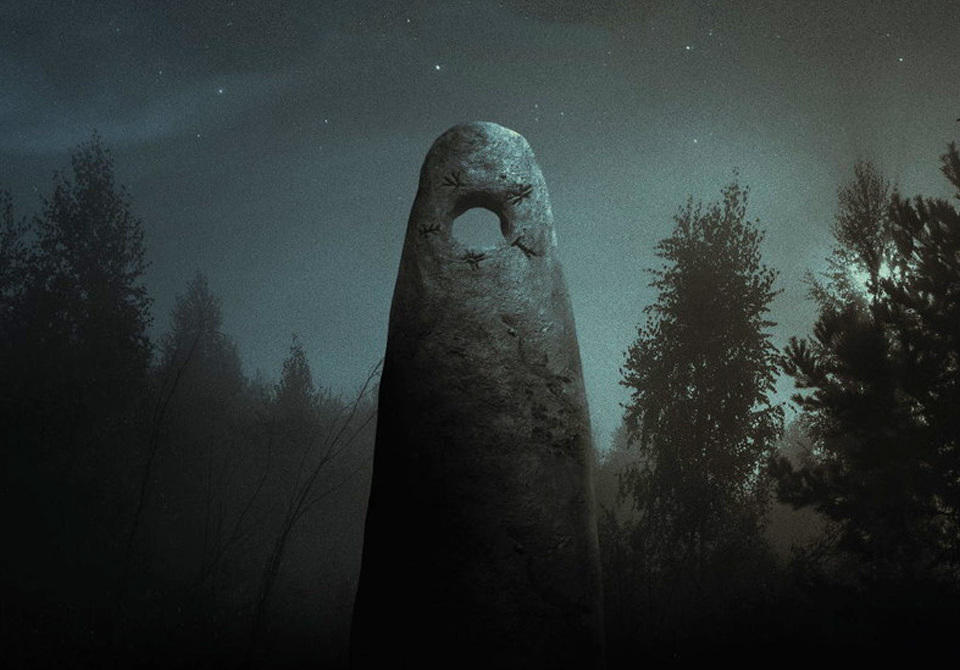The philosopher and celebrated pessimist, Eugene Thacker envisages the earth as, “the-world-without-us”, a world that is both, “impersonal and horrific” and disdainful of human existence. Thus, Thacker asks the question, “what happens when we as human beings confront a world that is radically unhuman, impersonal, and even indifferent to the human?” Ben Wheatley’s latest feature, In the Earth, written and directed in lockdown as a direct response to the pandemic, attempts to answer Thacker’s thesis as Covid-19 laid bare our tenuous stewardship of the planet we just happen to inhabit.
Wheatley, a child of the 70s, nurtured by folk horror, the more Lovecraftian episodes of Dr Who and the chilling public information films of that decade, marries science and the occult in pursuit of a mythical spirit named Parnag Fegg. His alternate Britain is swept by a deadly pandemic and the urbane and earnest Martin Lowery, aided by the indomitable park ranger, Alma go in search of Dr Wendle, who has stopped returning messages to The Lodge, a distinctly low-tech building running various agricultural projects that will presumably help humanity build back better after the catastrophe.
Like Pat Mills, the creator of the 1970s subversive 2000AD comic, Wheatley drinks from the rich well of British and Irish folklore to produce a frighteningly idiosyncratic tale of the weird and the eerie. Lush shades of green and shafts of sunlight bombard the screen, conjuring a beautiful yet foreboding backdrop to Martin and Alma’s journey. The British countryside has long been thought of as tamed, green belt land to be developed for executive houses and affordable homes but the pandemic, both imagined and real, has rendered the ordinary uncanny, and our relationship with the flora and fauna uncertain at best and perilous at worst.
Discarded tents, incomprehensible screeches in the dark, and ominous Neolithic stones point to the occult, mankind’s attempts to understand why the world has unleashed a disease that has disrupted our self-imposed dominion over it. Wheatley’s depiction of scientists grappling with the mysteries of the planet point to the often contradictory and confusing origin story of Covid-19 itself and the subsequent misinformation and dangerous conspiracy theories surrounding the pandemic. Wheatley seems to argue that the more we try to understand the earth, the more complexity we are likely to encounter.
But philosophy aside, Wheatley is a perverse joy when returning to his low budget roots. Your toes will curl at a protracted amputation scene and Martin and Alma’s odyssey when they finally encounter the wide-eyed Dr Wendle and the recluse, Zach, is suitably gruelling and traumatic. In the Earth is best viewed as a sequel to Wheatley’s earlier psychedelic Civil War era movie, A Field in England as a length of rope seems to tie both films through the ages. Ultimately, In the Earth seems to be a direct response to Thacker’s two kinds of pessimism when we question the pandemic’s deadliness but subsequent tedium, “The end is near” and “Will this never end?”

